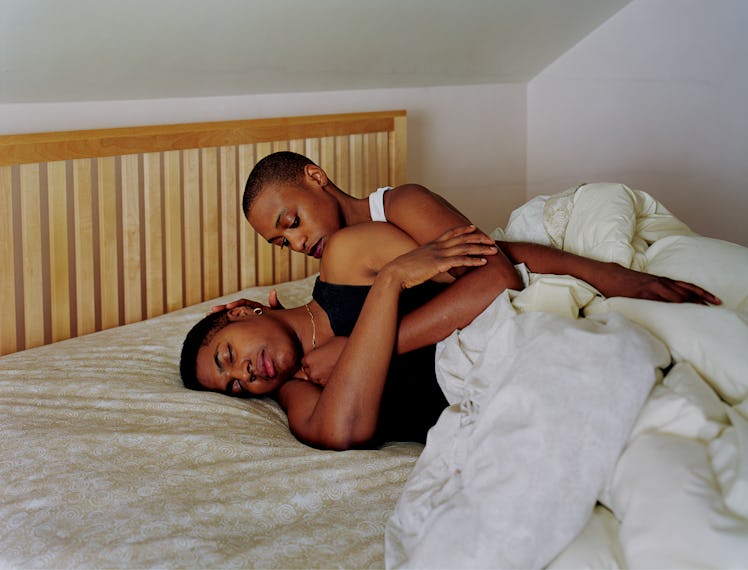Catherine Opie Reflects on a Career Documenting Queer Life

Catherine Opie is well-known for her portraits depicting queer life in California throughout the 1990s—but her oeuvre consists of so much more. To chronicle it all, the artist is releasing a new photo book titled Catherine Opie, out June 16 with Phaidon. Over 300 photos from the artist’s 40-year career have been selected for the tome, which Opie calls “a full, up-to-date examination of my work.”
Although queer identity is a central theme of Catherine Opie, the book also highlights three major themes; people, politics, and place. There are photos of Malibu surfers, high school quarterbacks, highway overpasses and images of the Alaskan landscape. And then there are images from protests in San Francisco protests during the 1980s, and the Black Lives Matter protests taken last summer in Los Angeles. “It was after George Floyd died, after the national protests had mounted,” says Opie on Zoom from Rome, where the artist is doing an artist residency. “There is a ‘documentary moment’ in my photos, which could be a journalistic moment, but then I land you in a vacant place that you then have to ponder what you’re really looking at.”
Further demonstrating her versatility, Opie’s domestic interior series, which she shot inside Elizabeth Taylor’s extravagant Bel Air estate, are also included in the book. The moving, intimate series includes photos of Taylor’s lavish perfume collection, her Chanel shoes and her living room, which was adorned with old paintings.
“I had no idea she would pass away in the middle of the body of work, but that’s what happened,” Opie says. “It ended up being the last portrait of Elizabeth Taylor.
“Someone asked me if I got a shot of her medicine cabinet and I said no, that’s not what I would do,” Opie adds. “That gets into tabloid.”
But one of Opie’s most recent subjects made headlines nonetheless: a shot of Drake and his 2-year-old son Adonis, whom she photographed last year in Toronto. “That was a hard portrait, Adonis was tired and cranky that day,” she says. “With kids, it’s hard, especially little kids.” Drake, she adds, knew her work and commissioned the photo.
“He never showed Adonis before publicly,” Opie says. “As soon as he saw the photo, he decided he would post it and that would be showing him as a father to Adonis for the first time.”
Portraits of Opie’s family and friends—John Waters and Michele Lamy among them—are framed in the book like moody renaissance paintings. She describes portraits like these as “highly performative,”—and this description applies when it comes to self-portraits, too. The book includes a shot Opie took of herself donning a plaid shirt while chopping wood in a New Zealand forest.
“It’s me trying to be butch and heroic. I had to chop wood to heat the house every day, there was no other heater,” Opie recalls. “Any self portrait of mine is performative.”
Currently, the artist is working toward her next book and an exhibition of work focused on 2020, a pivotal year in which she shot places where American monuments had been removed and the places most affected by the protests that took place during the Trump administration. As one of the most renowned women photographers in America today, she recognizes there’s still time to nurture the female gaze in mainstream photography.
“There’s more progress now, but photography when I was coming up was a male-dominated field,” Opie says. “It’s incredibly hopeful but still, the big money makers are a handful of men. I’m happy how things are being shaken up a bit. Not only for women, but the BIPOC community, as well.”
J.D., 2008
Self-Portrait/Nursing, 2004
Divinity Fudge, 1997
Divinity Fudge, 1997